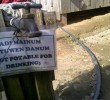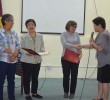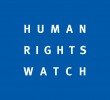The National Union of Peoples’ Lawyers (NUPL) condemns the imposition of the curfew by Pres. Gloria Arroyo as oppressive, unconstitutional and an arbitrary overkill intended only to instill fear on the people. Article III, Section 6 of the Constitution states that “Neither shall the right to travel be impaired except in the interest of national security, public safety or public health, as may be provided by law.” Absent any law, Pres. Arroyo does not have the authority to impose curfew. The supposed exemptions in the ‘guidelines’ are of no moment, since the order has no constitutional basis in the first place.
Sec. Norberto Gonzalez use of “police power” as the basis for the curfew order is misleading. Police power, as early as US vs. Gomez (31 Phil. 218), is defined as the “power of the State to enact such laws or regulations �as may promote public health, safety�”. Police power, therefore, requires the passage of a law and more, that it should be reasonable. Furthermore, the curfew ‘guideline’ did not undergo the publication required by the due process clause in Art. III Sec. 1 of the Constitution as laid down in Tanada vs Tuvera ( 146 SCRA 446). Any arrest on the basis of curfew, therefore, is arbitrary arrest and the detention of persons during the ‘curfew period’ is illegal detention. Human rights lawyers may use the Writ of Amparo rules to challenge the validity of these arrests.
Clearly, the curfews provided under PD 603 “The Child and Youth Welfare Code” and election laws are not applicable. A curfew issued under PD 603 applies strictly to minors, while a curfew issued under election laws applies only in “hotspots” or areas under the threat of violence during the election period.
Aside from the arrests being tantamount to arbitrary detention, the guidelines also imply that law enforcement personnel have blanket authority to conduct searches and seizures in checkpoints, pursuant to the curfew. Although the question of the constitutionality of checkpoints has not been fully resolved in jurisprudence (Valmonte v. De Villa 185 SCRA 665), the search permissible in checkpoints is limited to visual inspection — not physical or body searches (People v. Lacerna, G.R. No. 109250). Also, despite the doctrine in Lacerna that “consented search” at a checkpoint is valid, mere “passive submission” to such a search does not imply consent (Caballes v. CA, G.R. No. 136292).
The PNP guidelines also violate the right against self-incrimination under Article III, Secs. 12 and 17 of the Constitution and the right to privacy under Art. III, Sec. 2 (Ople v. Torres, G.R. No. 127685) by subjecting so-called “violators” to a mandatory medical examination. The “waiver” in writing provided in the guidelines is likewise illegal for violating the principle that a waiver made by a person under arrest or custodial investigation must be made in the presence of counsel in order to be valid. As stated in R.A. 7438 or “An
Act Defining Certain Rights of Persons Arrested, Detained, or Under Custodial Investigation as well as the Duties of the Arresting, Detaining and Investigating Officers, and providing penalties for violations thereof”:
Sec. 2(e). “Any waiver by a person arrested or detained under the provisions of Article 125 of the Revised Penal Code, or under custodial investigation, shall be in writing and signed by such person in the presence of his counsel; otherwise the waiver shall be null and void and of no effect.”
With this array of basic rights and laws violated, the imposition of the curfew is reminiscent of the dark martial law days of the Marcos regime. This is a clear example of the appalling extent this administration would go to hold on to power and, to ensure such hold, wield intimidation on the Filipino people. The announced lifting of the curfew, if true, does not cure the illegal act and does not absolve the government from liability.
The NUPL also expresses serious concern over the arrest of the media and other civilians at the Manila Peninsula disguised as a ‘processing of identity’. The media people were not only exercising their profession but were also exercising their constitutional right to “freedom of expression and speech” or press freedom. An ‘invitation’ which cannot be refused is a restriction to liberty and is, therefore, an actual arrest. The arrest was meant to instill a chilling effect on the media and curtail the people’s right to be informed.
The NUPL is willing to provide counsel to the media and other civilians arbitrarily arrested in Makati and calls on other members of the legal profession to provide legal services to protect the rights of the people in the midst of repression. The NUPL also calls on the government to lift the curfew order and desist from re-imposing curfew absent a law and the release of media personnel and other civilians subjected to arbitrary arrest as a result of the Makati incident.
The National Union of Peoples’ Lawyers was founded on September 15, 2007 as a nationwide voluntary association of human rights lawyers in the Philippines, committed to the defense, protection, and promotion of human rights, especially of the poor and the oppressed.
IMPORTANT NOTICE: INBOX is an archive of press releases, statements, announcements, letters to the editors, and manifestos sent to Davao Today for publication. Please email your materials to davaotoday @ gmail.com. Davao Today is not responsible for the content of these materials. The opinion expessed in these items does not reflect those of Davao Today and its staff. Please refer to our terms of use/disclaimer.










